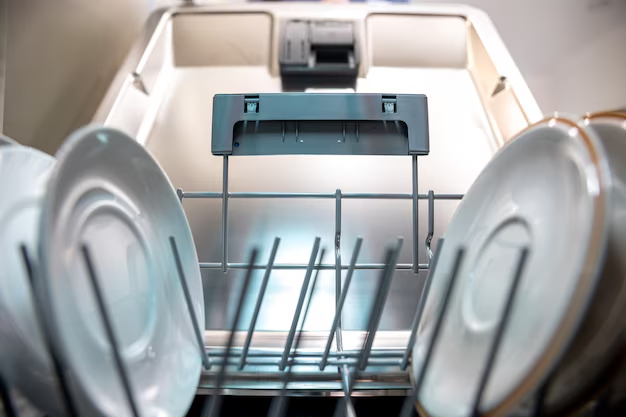What You Need to Know About Disposing of Refrigerators: Is It Legal?
Every so often, we face the task of disposing of large appliances like refrigerators. While it might seem like an uncomplicated endeavor to just cart it off to the landfill, there are numerous factors to consider, including environmental regulations and legal implications. But is it illegal to throw away a refrigerator? 🚮 This question isn't as straightforward as you might think. Let's explore what you need to know when disposing of a refrigerator responsibly.
Understanding the Legal Landscape
Is It Illegal to Simply Throw Away a Refrigerator?
Throwing away a refrigerator is seldom as easy as leaving it on the curb with your regular trash. Environmental regulations in many jurisdictions make it illegal to dispose of refrigerators this way due to their potential environmental impact. Many refrigerators contain substances like refrigerants and oils which, if not handled properly, can be harmful to the environment.
Federal Regulations
In some countries, federal environmental protection laws require the proper disposal of appliances containing substances harmful to the ozone layer. These regulations often mandate that refrigerants be removed by certified technicians before disposal. Check if your country or region has specific laws pertaining to appliance disposal to avoid unnecessary penalties.
State and Local Laws
State and local regulations can vary widely, and some jurisdictions have stricter rules than others. Many areas require a permit for appliance disposal and facilitate appliance recycling programs. Always verify with local waste management authorities to understand what rules apply in your area.
The Environmental Impact of Improper Disposal
Hidden Hazards: Harmful Substances
Refrigerators contain chlorofluorocarbons (CFCs) or hydrochlorofluorocarbons (HCFCs), which are harmful to the ozone layer if released into the atmosphere. Additionally, oils and other components can pose significant environmental risks. Consequently, improper disposal contributes to pollution and poses risks to human health.
Long-term Environmental Effects
Beyond the immediate hazards, improper disposal of refrigerators can lead to long-term environmental issues. The release of refrigerants contributes to global warming, while metals and plastics that are not recycled can take centuries to decompose in landfills.
Responsible Disposal Options
Recycling Programs
Many local governments and private companies offer recycling programs specifically for large appliances. These programs ensure that harmful substances are removed and disposed of properly, while reusable materials are salvaged and recycled.
Retailer Take-Back Services
When purchasing a new refrigerator, ask about take-back services. Many retailers offer the option to remove your old appliance when delivering the new one. This convenient service often includes proper disposal or recycling.
Waste Management Services
Local waste management authorities often provide guidelines or services for the disposal of large appliances. This can either be through dedicated disposal facilities or scheduled bulk waste collections.
What to Do Before You Dispose of Your Refrigerator
Before you dispose of your refrigerator, follow these critical steps to ensure compliance with regulations and minimize environmental impact:
Empty and Clean: Remove all contents and clean the refrigerator to prevent odors and sanitation issues.
Unplug and Defrost: Allow the refrigerator to defrost completely.
Safety Measures: Secure the doors or remove them entirely to prevent accidents or entrapment.
Schedule a Service: Arrange for a certified professional to remove harmful refrigerants.
Key Points to Remember
To make this information easier to digest and actionable for consumers, here are the critical points to consider when disposing of a refrigerator:
- 🚫 Illegal Dumping: Avoid illegal dumping; it's against the law in many areas.
- 🔧 Professional Help: Always use certified professionals for refrigerant removal.
- ♻️ Recycling Benefits: Opt for recycling programs to minimize environmental impact.
- 🗓️ Plan Ahead: Early planning can ensure you meet local disposal requirements.
- 📞 Contact Authorities: Reach out to local waste management for guidelines.
Exploring Alternatives
Upcycling and Repurposing
If your refrigerator is still functional, consider alternative uses. With some creativity, old refrigerators can be repurposed into unique furniture pieces or storage units.
Donating or Selling
For working appliances, consider donating to local charities or selling through second-hand platforms. This not only helps someone in need but also extends the appliance's lifecycle.
The Importance of Responsible Disposal
Taking responsibility for the disposal of large appliances like refrigerators is essential for both legal compliance and environmental sustainability. By ensuring that proper steps are taken, including leveraging recycling programs and professional services, we can mitigate harmful effects and promote a healthier planet.
In conclusion, while tossing a refrigerator into the trash might seem like the path of least resistance, it's fraught with legal and environmental issues. Considering alternatives such as recycling programs, take-back services, or repurposing can turn an unwanted fridge into an opportunity for responsible disposal and positive environmental impact. Always check local laws and regulations to make the most informed, responsible decision. 🌍

